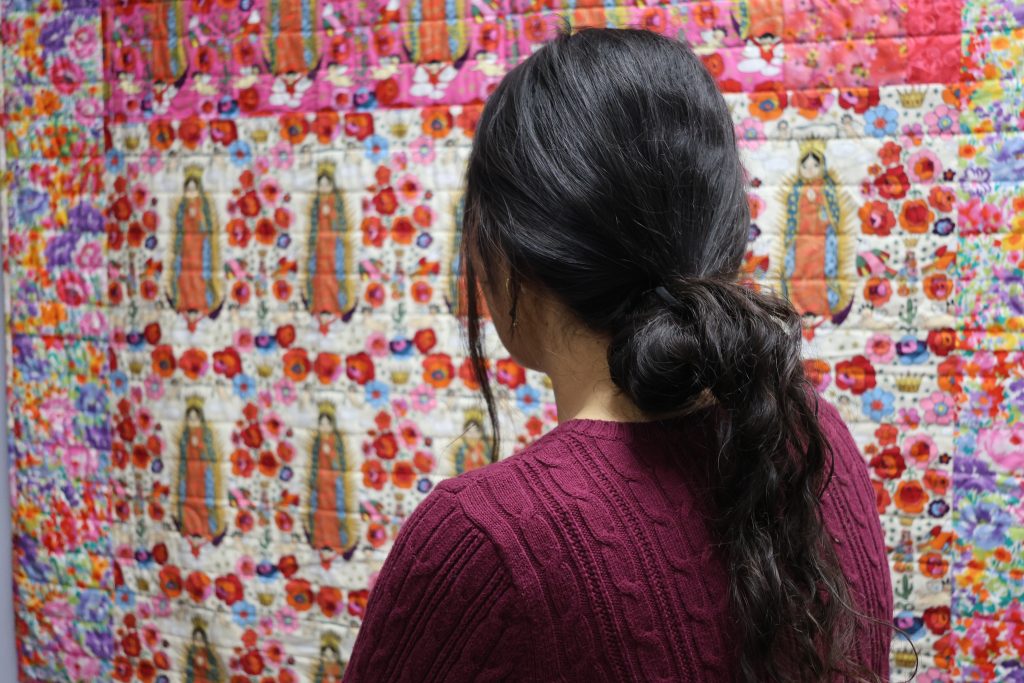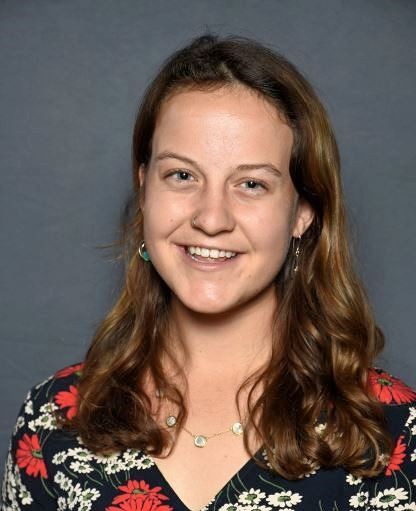
For 14 years, Alondra has volunteered at her childrens’ San Jose elementary school, watching kids during recess, reading in classrooms and providing support to students. She is such a common face at school that she is occasionally mistaken for the classroom teacher by parents at the grocery store.
Although Alondra isn’t paid for her work at the school, she finds it meaningful. “All the children told me that they paid me with the love they had for me.”
Alondra, 45, is one of the estimated 1.8 million undocumented immigrants in California who could be impacted by President-elect Donald Trump’s pledge to conduct the largest deportation operation in American history.
Alondra is not her real name, and identifying information has been omitted to protect her safety. The Peninsula Press spoke with Alondra in Spanish, and her comments have been translated and lightly edited for clarity. She lives in San Jose with her husband, who is documented, and her four children, all U.S. citizens by birth.
Alondra came to the United States in 2003 to support her family back in Mexico. She slept on her brother’s couch in San Diego and worked at a cafeteria where she was paid $8 an hour. Alondra’s first few months were especially stressful.
“Every time I looked at a police officer, I got nervous and got a stomach ache from the fear that they were going to work for immigration [enforcement],” she said.
Alondra intended to stay in the U.S. only temporarily, but in 2005, she moved to a quiet community in San Jose with a strong Latino community. She eventually met her husband, a charity minister at the church where she sang in the choir. They soon had their first child, a daughter named Alejandra.
When Trump was elected for the first time in 2016, Alondra’s children were all less than ten years old. At the time, both she and her husband were undocumented. They prepared for the possibility of deportation by gathering legal documents and preparing a plan for relatives to take care of their kids until the family could reunite in Mexico.
“I looked at the news, how they had a lot of children without parents, caged up as if they were animals. And that’s what [Trump] wants to do right now, again,” Alondra said.
Since his November re-election, Trump has confirmed details of his deportation plan, which includes declaring a national emergency and deploying the U.S. military in some form.
Experts have questioned the legality and feasibility of such an immigration policy. Further, undocumented people are more protected in states like California, which passed a sanctuary law in 2018 that prevents state and local resources from being used for immigration enforcement.
Following Trump’s re-election, Alondra said undocumented people in her community are nervous they will be deported and their children, many of whom were born in the U.S., would be left without their parents. She added that some undocumented people who have lived in the community for many years are leaving with their families in advance of Trump entering office.
“They are leaving their homes, their jobs behind,” she said. “And it is sad to see all of this that is happening. It does affect us. We are immigrants, and we have a heart.”
According to Alondra, the proposed policy has also caused educational disruption for the students she works with at the elementary school. In addition to her volunteer work, Alondra serves on the school board’s advisory committee, which helps develop education programs and services for English-learning students. She has seen that many students at the majority Hispanic school she represents are feeling anxious and afraid.
“[The kids] have problems at school, they’re not paying attention,” said Alondra. “They’re scared because they’re thinking that [immigration enforcement] is going to take their dad or their mom if they don’t have papers.”
The possibility of deportation also looms large for Alondra and her family. Her eldest daughter, Alejandra, 18, is a full-time student at San Jose City College, where she is pursuing a degree in Administration of Justice. After her classes, Alejandra studies and looks after her younger brothers, ages 15, 12 and 4.
“As an older sibling, the only thing you would truly want to do is make sure that your siblings are safe and don’t have to feel scared of losing their parents,” she said. “One of the biggest feelings is always fear because if anything happens to her, I would have to take care of all my little brothers.”
Bay Area would be “unimaginable” without undocumented immigrants
Trump’s proposed deportation policy, if carried out, could have far-reaching effects.
Undocumented immigrants are integrated into every part of California’s economy, said Jamshid Damooei, executive director of the Center for Economics of Social Issues at California Lutheran University. He added that their economic contributions are wider than the service and agricultural industries.
“They have a distinct place in the economy of California, in the society of California, and the life of California,” Damooei said.
Damooei estimates that undocumented people contribute $512 billion in total economic value to the state through their direct, indirect, and induced impact. But the statistics, he said, are only one part of the bigger picture. He notes in his report that undocumented immigrants contribute to job creation by opening businesses and filling labor shortages upon which many other jobs depend.
“We’re interconnected in our world. We’re interconnected in our family. We’re interconnected in our culture, our existence, our humanity.” Damooei said.
According to Erika Carlos, the Bay Area would be unrecognizable without the undocumented people who call it home. Carlos is editor-in-chief of El Tecolote, a bilingual news publication that covers issues shaping the lives of San Francisco’s Latino community.
“It’s so unimaginable to…get rid of undocumented immigrants because we rely on them so much,” Carlos said.
Following Trump’s re-election this year, Carlos said there have been many efforts from grassroots organizers and local community coalitions to protect the people that could be impacted by Trump’s proposed policies. She’s also noticed a change in the narrative about how people are responding to Trump’s second administration.
“The messaging [in 2016] was so negative,” she said. “You can go down that path, but what you can’t do is lose hope.”
While Alondra initially felt disheartened after Trump’s re-election, it was her daughter, Alejandra, who helped her preserve hope.
“[Alejandra] said, ‘Oh mom, change your clothes, comb your hair, put on your shoes, let’s go out. Don’t do what they did when he won again, [when] all the people were scared, with their spirits down,’” Alondra said. “Alejandra said… ‘We’re going to go outside, we’re going to the park. Nothing is going to happen here.’”


